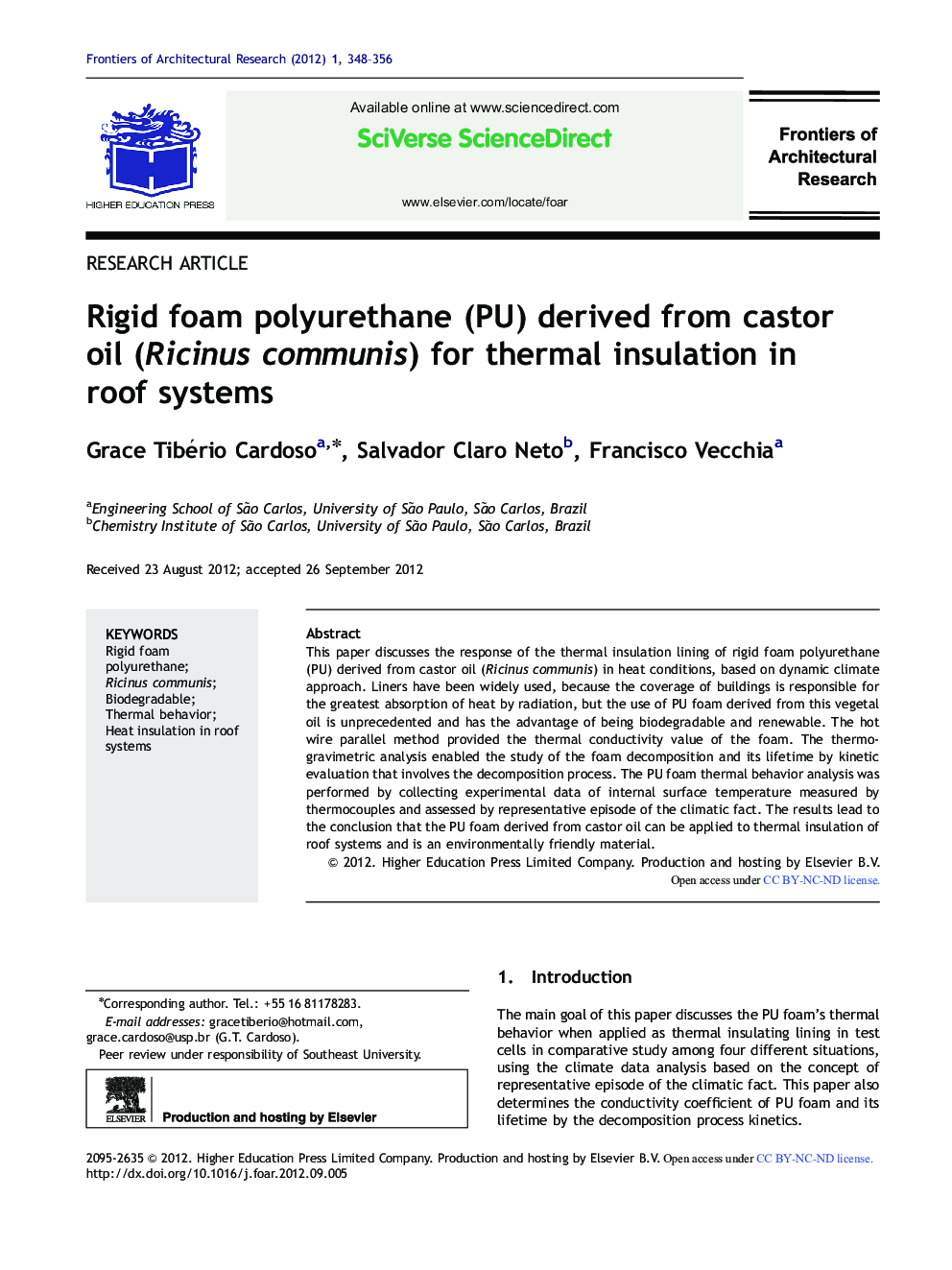| Article ID | Journal | Published Year | Pages | File Type |
|---|---|---|---|---|
| 270789 | Frontiers of Architectural Research | 2012 | 9 Pages |
This paper discusses the response of the thermal insulation lining of rigid foam polyurethane (PU) derived from castor oil (Ricinus communis) in heat conditions, based on dynamic climate approach. Liners have been widely used, because the coverage of buildings is responsible for the greatest absorption of heat by radiation, but the use of PU foam derived from this vegetal oil is unprecedented and has the advantage of being biodegradable and renewable. The hot wire parallel method provided the thermal conductivity value of the foam. The thermogravimetric analysis enabled the study of the foam decomposition and its lifetime by kinetic evaluation that involves the decomposition process. The PU foam thermal behavior analysis was performed by collecting experimental data of internal surface temperature measured by thermocouples and assessed by representative episode of the climatic fact. The results lead to the conclusion that the PU foam derived from castor oil can be applied to thermal insulation of roof systems and is an environmentally friendly material.
